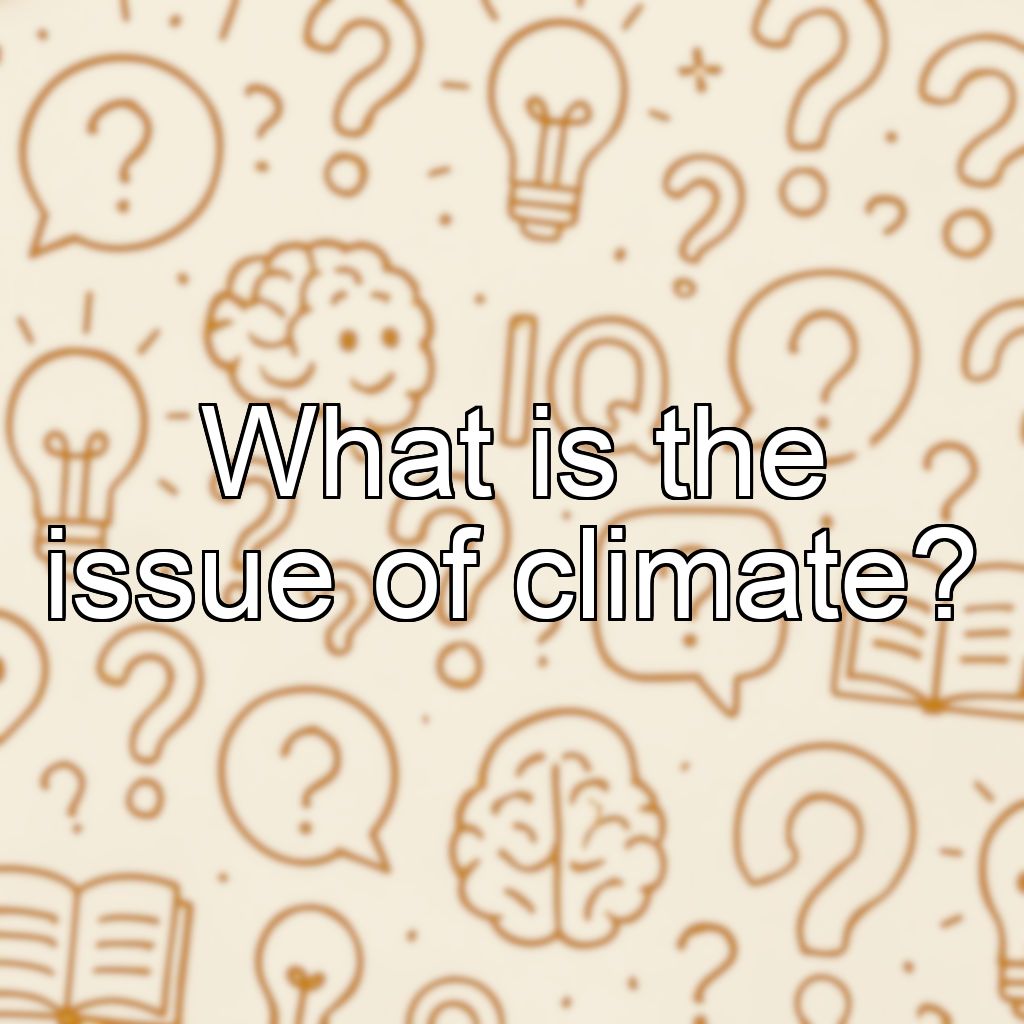What is the issue of climate?

Understanding the Issue of Climate
The issue of climate refers to ongoing changes and disruptions in the Earth's climate systems, largely attributed to human activities. This problem, commonly known as climate change, encompasses a range of environmental, social, and economic challenges that result from the accumulation of greenhouse gases in the atmosphere, deforestation, and other ecological disturbances.
Main Aspects of the Climate Issue
- Global Warming: The Earth's average temperature is rising due to increased concentrations of greenhouse gases such as carbon dioxide (CO2), methane, and nitrous oxide.
- Extreme Weather Events: There is an increase in the frequency and severity of extreme weather, including hurricanes, droughts, floods, and heatwaves.
- Sea Level Rise: Melting glaciers and polar ice, along with the expansion of seawater as it warms, lead to rising sea levels that threaten coastal communities.
- Biodiversity Loss: Shifts in climate patterns and habitat destruction have led to the endangerment and extinction of many plant and animal species.
- Economic and Social Impacts: Climate change affects food security, water supply, human health, and can exacerbate poverty and displacement.
Addressing the Climate Issue
- Mitigation: Reducing greenhouse gas emissions through renewable energy, energy efficiency, and sustainable land management.
- Adaptation: Developing strategies to cope with the effects of climate change, such as improved infrastructure, disaster preparedness, and resilient agriculture.
- International Cooperation: Global agreements like the Paris Agreement aim to unite countries in limiting global temperature rise and supporting adaptation and mitigation efforts worldwide.
Addressing the climate issue is essential for the well-being of current and future generations, requiring global collaboration and immediate action from individuals, businesses, and governments.